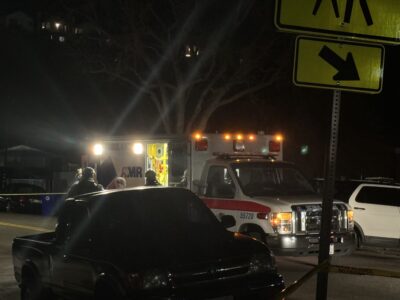Administration disputes CNN report on leaked damage assessment
Compiled from news service reports.
President Donald Trump announced that Israeli officials believe the U.S. airstrike targeting an Iranian nuclear site over the weekend has made it “totally inoperable” and set the regime back for years.
“The devastating U.S. strike on Fordow destroyed the site’s critical infrastructure and rendered the enrichment facility totally inoperable,” Trump told a NATO conference in the Netherlands, reading the statement from the Israeli Atomic Energy Commission
The agency assesses “that the American strikes on Iran’s nuclear facilities have set back Iran’s ability to develop nuclear weapons for many years to come.”
Over the weekend, U.S. B-2 stealth planes dropped bombs on several Iranian sites, including the partially buried Fordow site, before Trump announced that a cease-fire would commence between Israel and Iran after more than a week-long aerial conflict between the two nations.
This week, a preliminary report, issued by the Defense Intelligence Agency, was leaked to media outlets stating Iran’s nuclear capabilities were not totally destroyed in the U.S. airstrike, drawing pushback from Trump and other administration officials.
When asked about that DIA report on Wednesday, Trump disputed the assessment, saying. “All they can do is take a guess.”
“Now, if you take a look at the pictures … the whole area for 75 yards around the hole is black with fire,” Trump said, referring to the damage done during the strikes on Fordow. He also chided media outlets for reporting on the leak, saying that the pilots of the U.S. B-2 planes put their lives at risk to carry out the mission and that the report was discrediting those military members.
“It was obliteration, and you’ll see that,” Trump told reporters earlier in the day while attending the NATO summit in the Netherlands. He said the intelligence was “very inconclusive” and described media outlets as “scum” for reporting on it.
Trump has said in comments and posts on social media in recent days, including Tuesday, that the strike left the sites in Iran “totally destroyed” and that Iran will never rebuild its nuclear facilities.
The White House also rejected the DIA assessment, releasing an emailed statement on Wednesday indicating that Iran’s nuclear facilities “have been obliterated” and chided “fake news” reports.
That email also included a quote from Iran Foreign Ministry spokesman Esmail Baghaei saying that “our nuclear installations have been badly damaged, that’s for sure.”
On Tuesday, Israeli Prime Minister Benjamin Netanyahu said in a televised statement, “For dozens of years I promised you that Iran would not have nuclear weapons and indeed … we brought to ruin Iran’s nuclear program.” He said the United States joining Israel was a historic move and praised Trump.
It comes as the head of the UN atomic agency signaled that international investigators are unsure of where Iran’s uranium is located following the strikes or whether it was moved.
Speaking to Fox News on Tuesday, International Atomic Energy Agency Director-General Rafael Mariano Grossi was asked about 900 pounds of uranium that Iran reportedly possessed. He then indicated that the U.N. agency doesn’t know.
“I have to be very precise. …We are the IAEA, so we are not speculating here,” he said. “We do not have information of the whereabouts of this material.”
“At this time, no one, including the IAEA, is in a position to have fully assessed the underground damage at Fordow,” he told the agency’s board of governors. “Given the explosive payload utilized and the extreme(ly) vibration-sensitive nature of centrifuges, very significant damage is expected to have occurred.”

Leavitt, Hegseth Issue Statements
In a statement issued on Tuesday, White House press secretary Karoline Leavitt said the alleged early DIA assessment cited by CNN was “flat-out wrong,” and accused the outlet of relying on a “low-level loser in the intelligence community” to undermine Trump and discredit U.S. pilots.
“The leaking of this alleged assessment is a clear attempt to demean President Trump and discredit the brave fighter pilots who conducted a perfectly executed mission to obliterate Iran’s nuclear program,” Leavitt said. “Everyone knows what happens when you drop fourteen 30,000-pound bombs perfectly on their targets — total obliteration.”
Likewise, Defense Secretary Pete Hegseth dismissed the notion that the strikes were anything less than a total success.
“Based on everything we have seen — and I’ve seen it all — our bombing campaign obliterated Iran’s ability to create nuclear weapons,” Hegseth said in a statement. “Our massive bombs hit exactly the right spot at each target — and worked perfectly. The impact of those bombs is buried under a mountain of rubble in Iran; so anyone who says the bombs were not devastating is just trying to undermine the president and the successful mission.”
CNN reported on Tuesday that an early battle damage assessment produced by the Pentagon’s intelligence arm concluded that the strikes had not destroyed Iran’s centrifuges or its stockpile of enriched uranium. Citing four unnamed sources briefed on the findings, the report said the damage was limited primarily to aboveground infrastructure and that Iran’s nuclear program may only have been set back by at most several months.
The report appeared to contradict Trump’s televised statement on Saturday night that the strikes “completely and totally obliterated” Iran’s nuclear capabilities. On Tuesday morning, Trump doubled down on that assessment, saying, “I think it’s been completely demolished.”
Chairman of the Joint Chiefs of Staff Gen. Dan Caine offered a more cautious tone on Sunday, telling reporters that it was “way too early” to determine whether Iran retained any nuclear capability.
“I know that battle damage is of great interest. Final battle damage will take some time, but initial battle damage assessments indicate that all three sites sustained extremely severe damage and destruction,” Caine told reporters.
“I think BDA [battle damage assessment] is still pending and way too early to comment on what may or may not be there.”
Intelligence assessments are ongoing, and a classified briefing for lawmakers — originally scheduled for Tuesday — has been postponed until Friday, according to House Speaker Mike Johnson, R-La.
Meanwhile, top House Democrats have raised concerns that the briefing was postponed, delaying what they say is a necessary opportunity to evaluate the Trump administration’s actions in Iran and assess the situation in the Middle East.
“The American people deserve to know the facts and the truth,” House Democratic Leader Hakeem Jeffries, D-N.Y., told reporters on Tuesday, adding that the Trump administration had not yet presented evidence supporting claims that Iran’s nuclear program was neutralized.
Hegseth: FBI Investigating Leak of Iran Strike Intelligence Report
Hegseth says the FBI is probing the leak of the intelligence assessment indicating that the U.S. weekend strikes on three Iranian sites only delayed the country’s nuclear program by months rather than completely destroying it.
“We’re doing a leak investigation with the FBI right now because this information is for internal purposes, battle-damage assessments,” Hegseth said at the NATO summit in the Netherlands on Wednesday.
“And CNN and others are trying to spin it to make the president look bad when this was an overwhelming success.”
Hegseth noted that the DIA report was top-secret and preliminary and that its conclusion is one of low confidence.
“You make assessments based on what you know,” he said, adding the leak of the report is motivated by politics.
“These leakers are professional stabbers,” Secretary of State Marco Rubio said at the NATO summit in the Netherlands on Wednesday.
Appearing on Fox News on Tuesday, Special Envoy for the Middle East Steve Witkoff called the leak treasonous and said that “it ought to be investigated.”
Vice President JD Vance said on Fox News on Monday that, even if Iran has uranium, it cannot produce a nuclear weapon without the infrastructure.
“If they have 60% enriched uranium, but they don’t have the ability to enrich it to 90%, and, further, they don’t have the ability to convert that to a nuclear weapon, that is mission success,“ he said. ”That is the obliteration of their nuclear program, which is why the president, I think, rightly is using that term.”
Jack Phillips, Tom Ozimek, Jackson Richman and The Associated Press contributed to this report.








